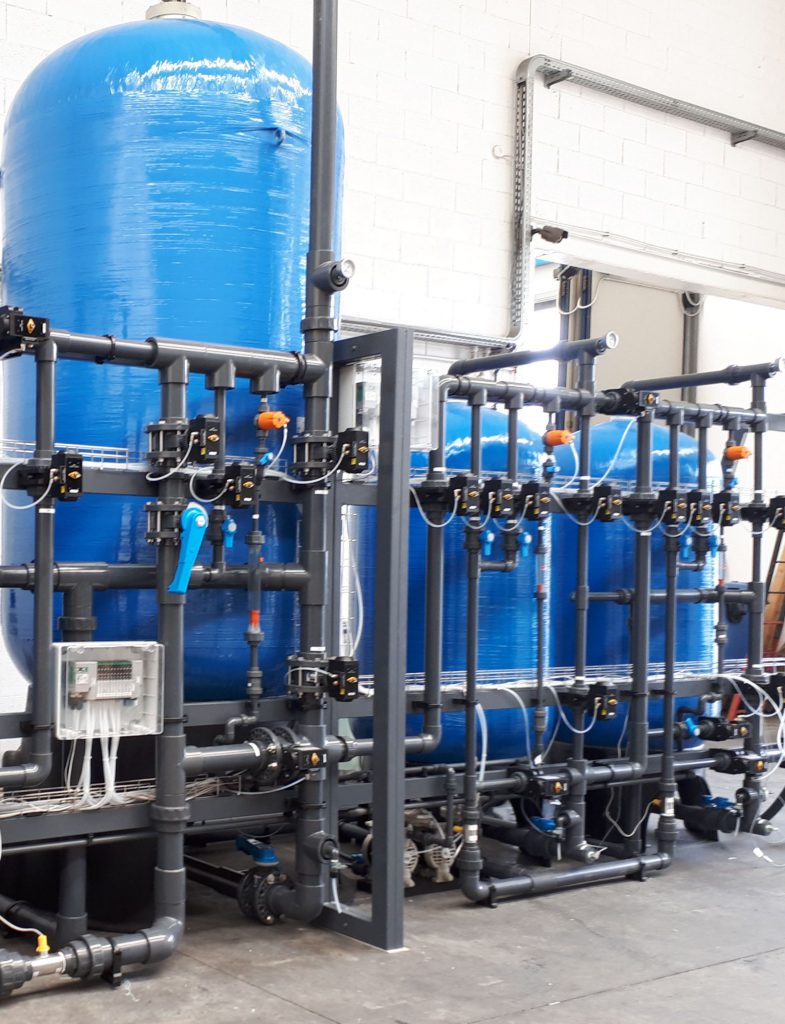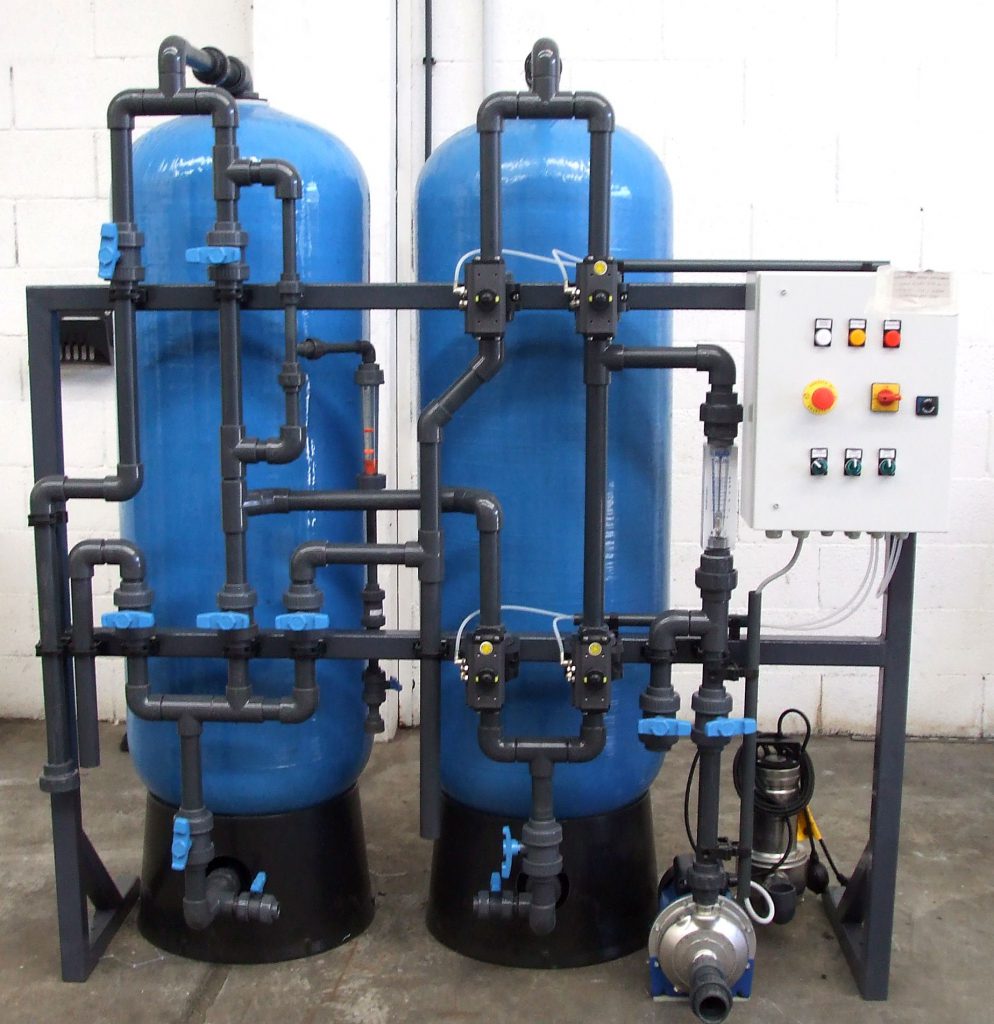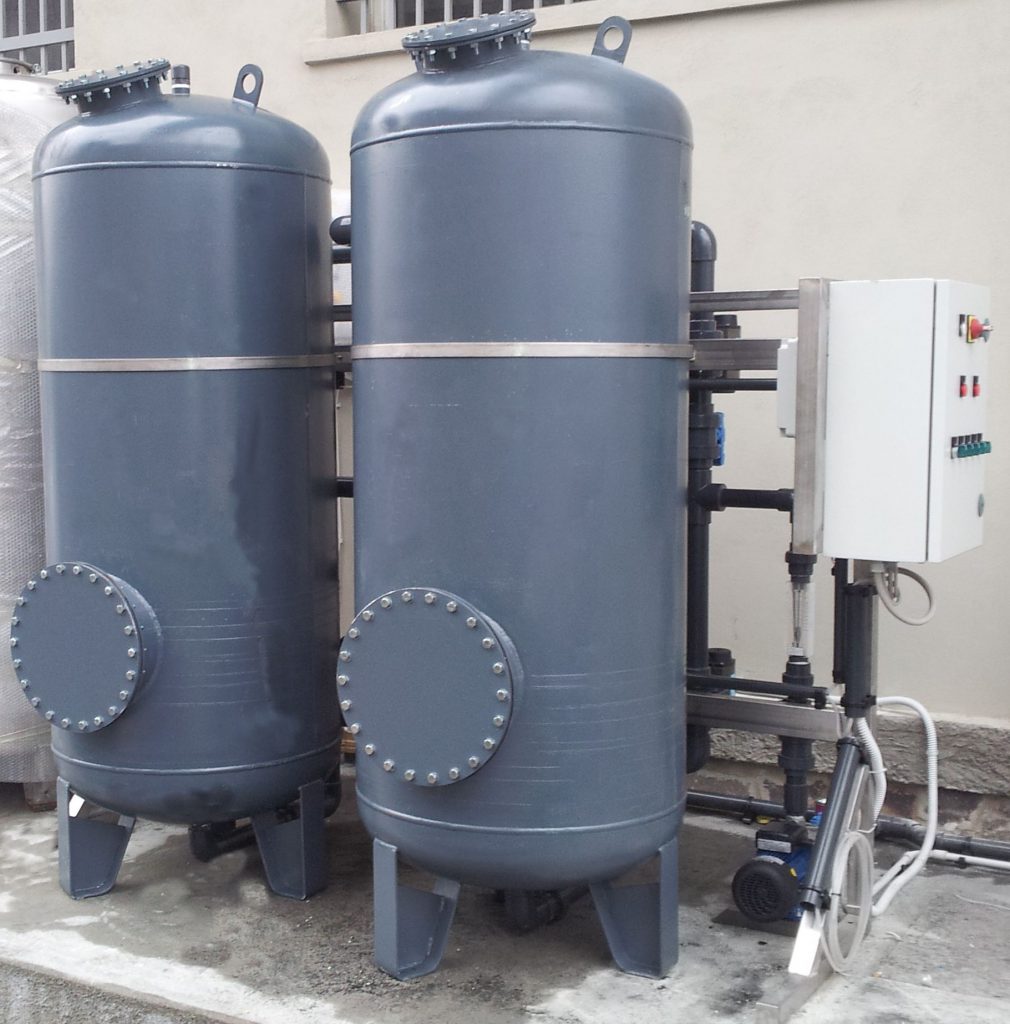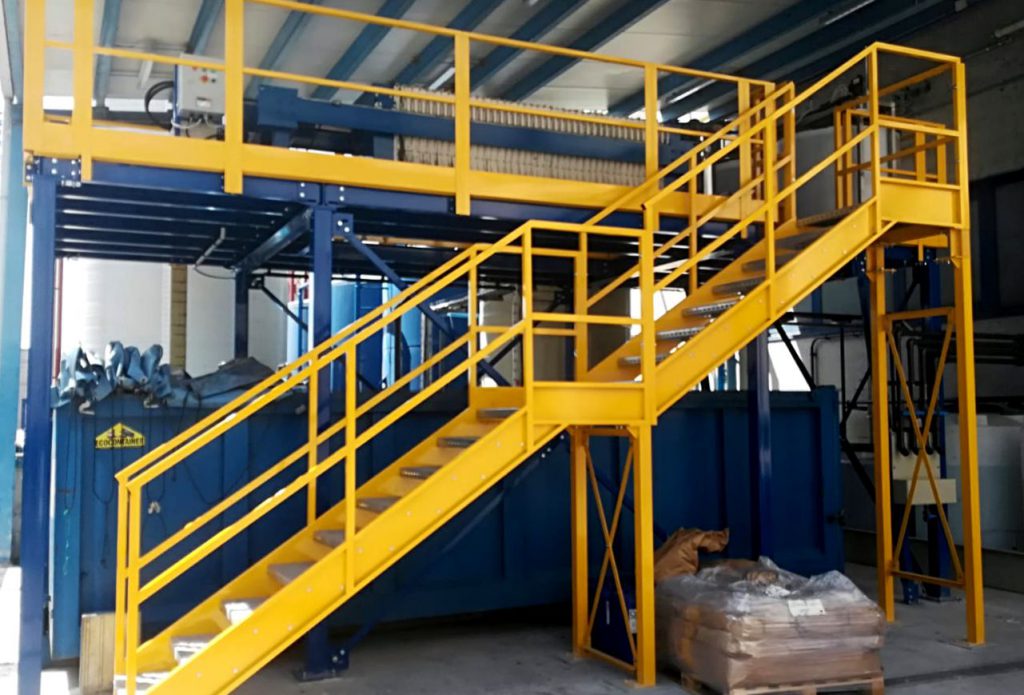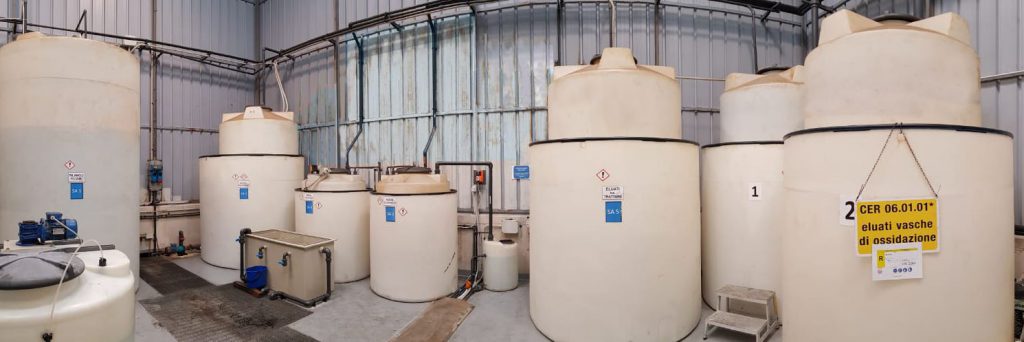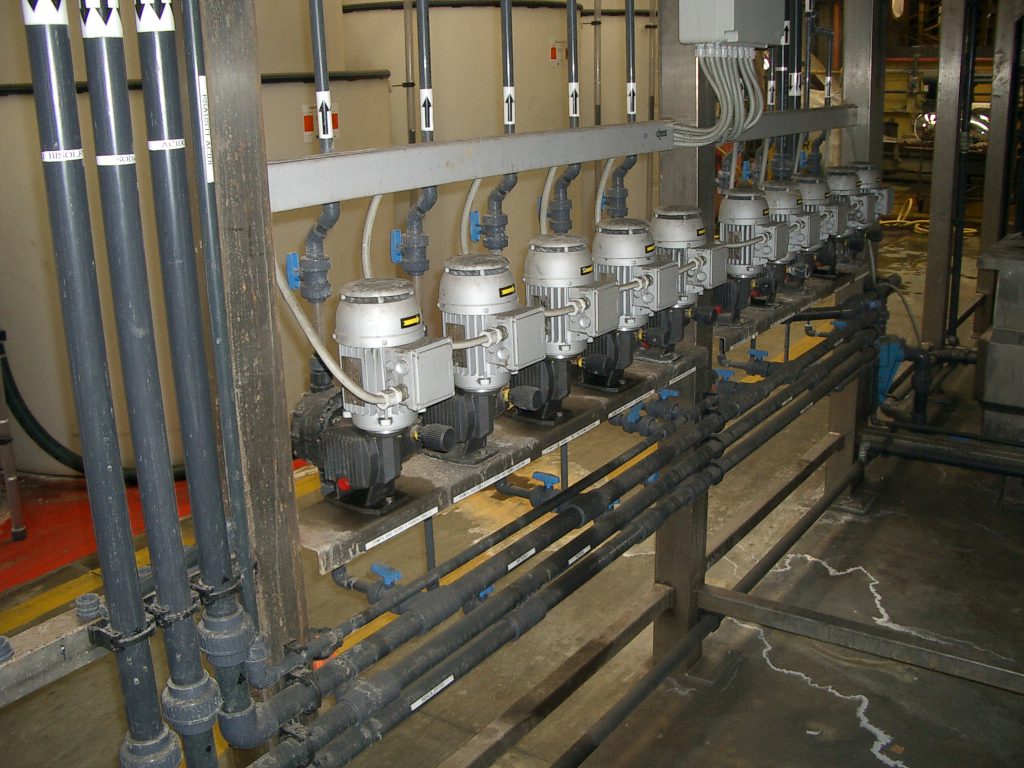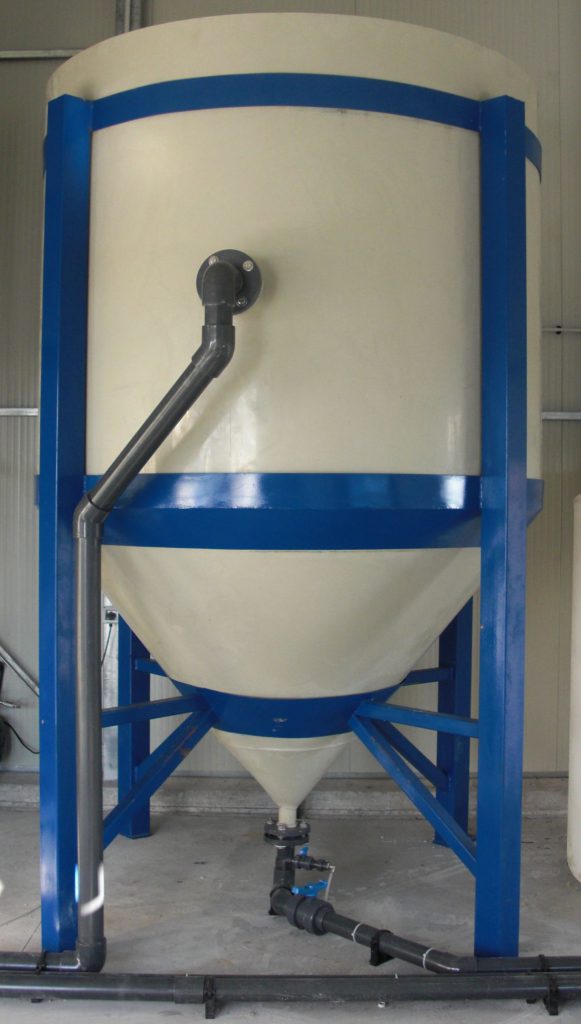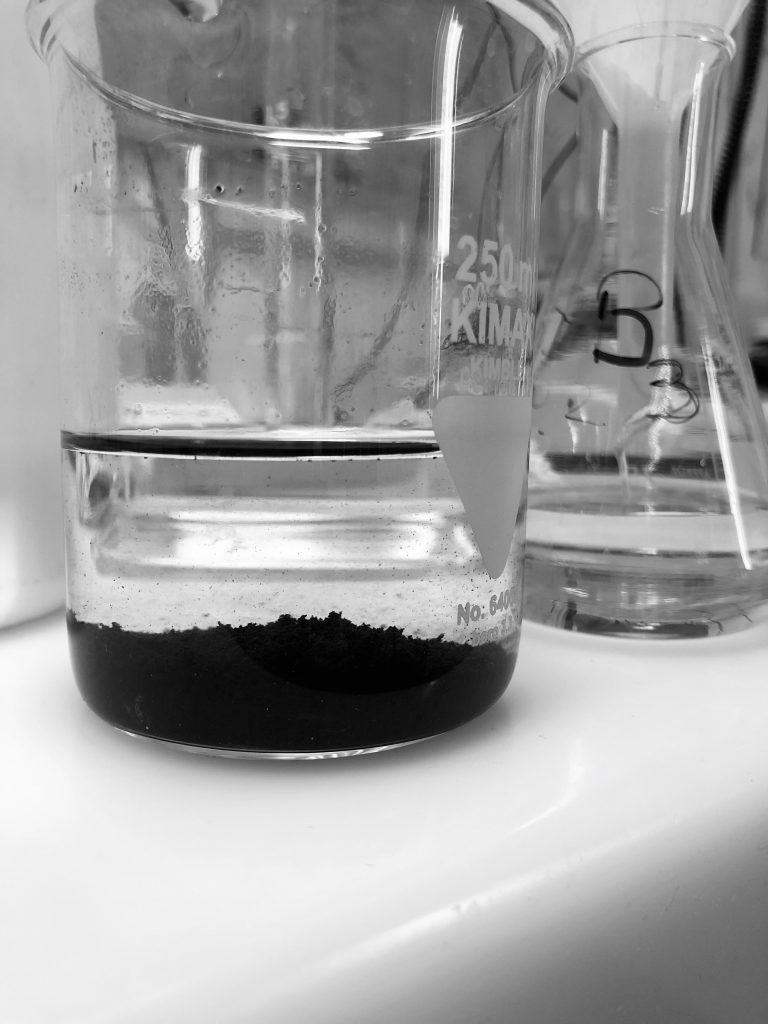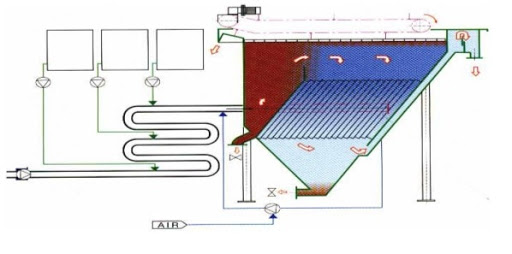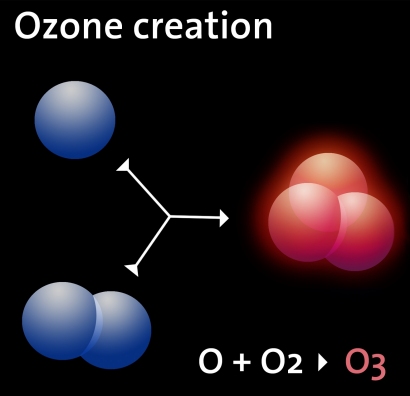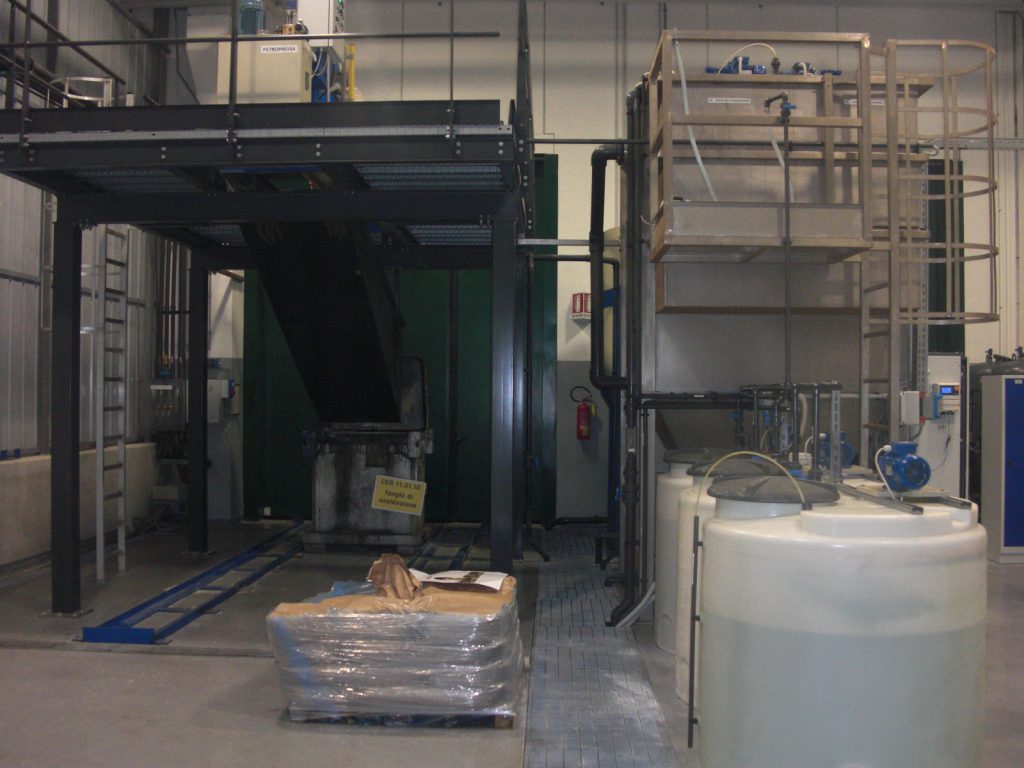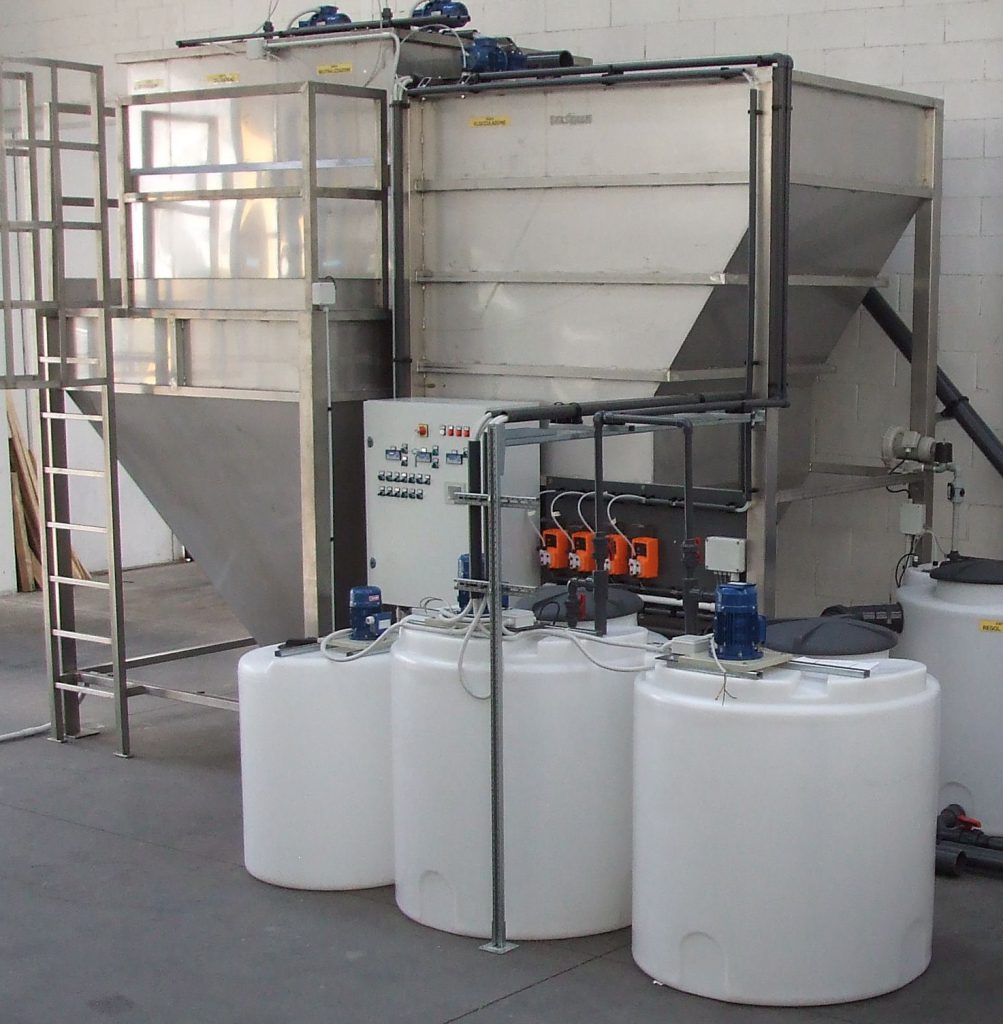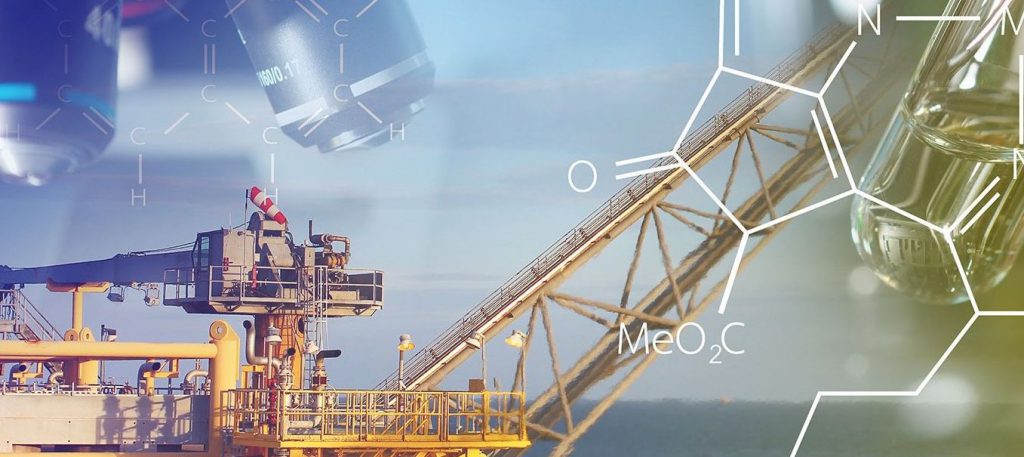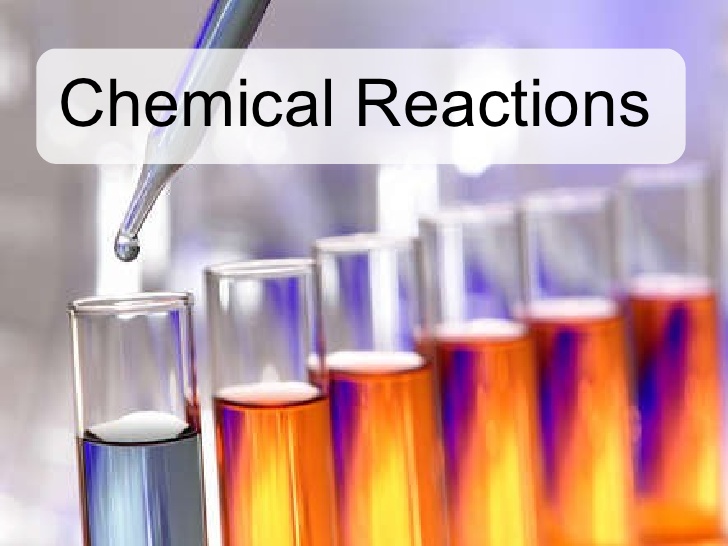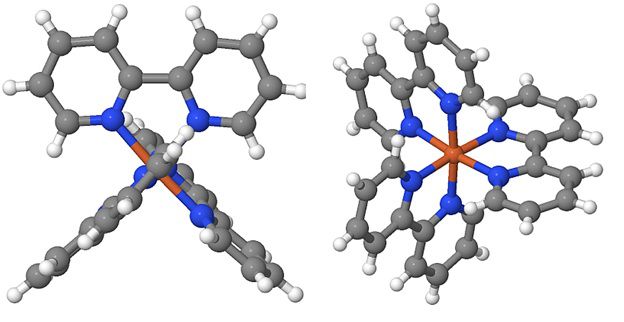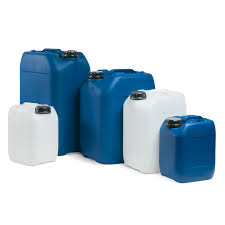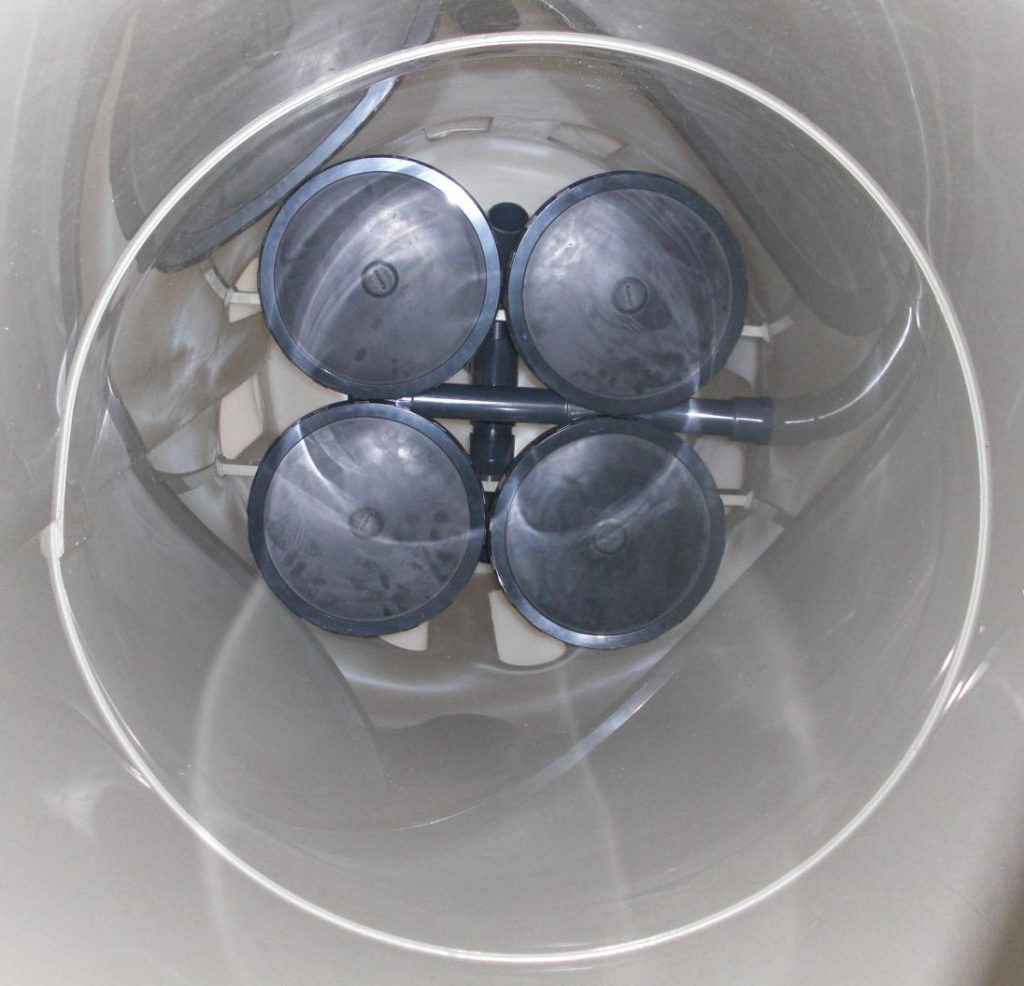An indispensable phase in a plant of the chemical-physical type is the neutralization of the pH, this phase is the simplest and most important of the entire wastewater treatment process.
The water neutralization or pH correction, is carried out before the flocculation section of the water, the neutralization takes place with acid or alkaline reagents, a reading probe immersed in the liquid detects a signal that is sent to a pH reader that translates it into value.
The setting of the pH value in the neutralization phase is very important, each metal has a known insolubility pH, in case the wastewater is composed of several metals it is necessary to set a value in the purification plant that is suitable for all.
To neutralize the water in a physical-chemical plant several reagents can be used, caustic soda or lime milk, sulphuric acid or hydrochloric acid can be used. During the design phase it is important to define the type of reagents to be used, the reaction tank of the physical-chemical plant must have a useful contact time (20 min) in order to carry out the chemical reaction correctly.

